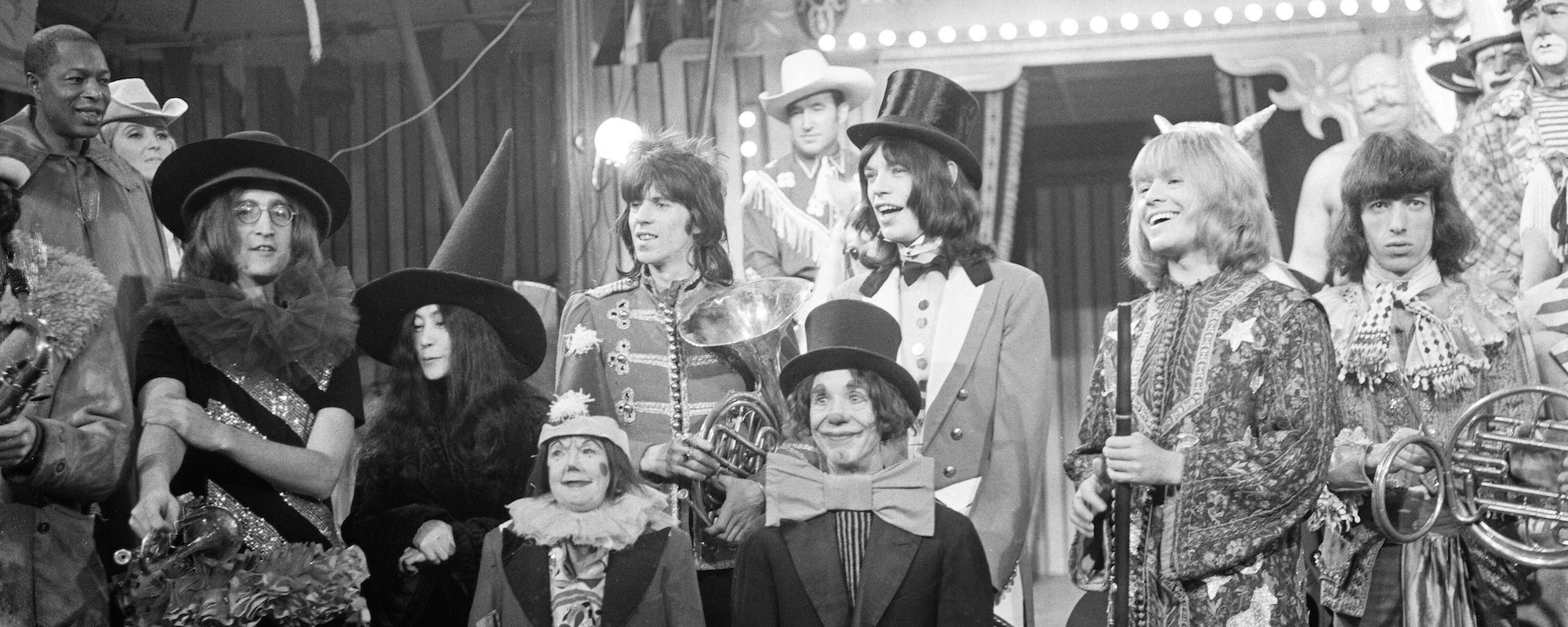Because of the Covid-19 pandemic, countless people employed in the music industry have lost their incomes. Live performers, road crews, bus drivers, and those who provide the numerous ancillary services connected to the music business have seen their lives change drastically, and the entertainment world may never again be what it was.
Videos by American Songwriter
To raise money and awareness to help those music industry brothers and sisters in need, Keith Levenson, noted conductor and music director for The Who, and stage actor Gilgamesh Taggett teamed up to start Fustercluck, a 501(c)3 non-profit organization aimed at raising funds through a variety of avenues, including merch sales through its website. At fustermerch.com, Fustercluck signature hoodies, dog bandanas, “Music Matters” neck gaiters and more can be ordered, with a portion of the proceeds donated for distribution through MusiCares.
Levenson himself is among the unemployed at the moment, as his 2020 tour with The Who was canceled and he has yet to return to the stage. He discussed Fustercluck, and his work with The Who, with American Songwriter via Zoom from New York.
“Back in April and May my partner in Fustercluck and I were churning out parody videos on the pandemic, the politics of the pandemic, politics in general,” he said. “We were putting out a lot of product in terms of video, and it was like, we really should do something with this. Like opening a bank account, and then figuring out what we were gonna sell, which is merch. We couldn’t monetize other people’s music, so we needed to start developing things that we could monetize. My wife has kept the store and the website up to date. In that sense we’ve done very well.”

In addition to branded merch and parody videos, the fustercluckmusic.com website also features video interviews with some of the giants of the music industry. “I’ve been lucky enough to have been in the rock ‘n’ roll business long enough to have access to great people,” Levenson said, “like Eddie Vedder, Roger Daltrey, Darlene Love, Rick Nielsen, Jon Anderson—in fact, we have a whole lot of stuff we haven’t released yet.”
Levenson was in Nashville in December to take part in the Live Events Lift Up Festival (LEVL UP) that was held at the Ryman Auditorium on December 16 to raise money for the unemployed. “Through all of this I’ve met extraordinary people,” he said. “One of them, a guy named Sam Wade, has become a songwriting partner. We both went to Nashville for LEVL UP, which was both live and pre-records. There were people like Dave Matthews on the bill, Gavin DeGraw, Blake Shelton did a pre-record for us, and I was the music supervisor for the event. We raised some money for crews there, that was the focus of that. The song ‘12 million’ [about the unemployed] that Sam and I wrote closed out the show. That song has been released on Bandcamp and other streaming services.”
“Fustercluck’s beneficiary is MusiCares,” he continued, “but with the LEVL UP festival they actually had three beneficiaries. One was MusiCares, one was the Country Music Association, and the third is the Roadie Clinic, an actual brick and mortar building in Michigan, kind of a place for mental health treatment, food and shelter for people who have been on the road, who have lost all of their income and really have no place to go. It took a village to do that one, including the support of the Ryman and the support of a team of Covid control people. Everyone tested every day, basically in a bubble, and nobody got sick, which was pretty incredible with a lot of people in the room.”
Levenson has one of the most daunting jobs in music, not only conducting the full orchestras that accompany one of the world’s most iconic bands, but making sure those orchestras are prepared to play in each performance city, and that, literally and figuratively, they work in harmony with the band. “In major cities it’s no problem,” he said, “because people have played Broadway, or they’ve played tours, they are local symphony players, and I’ve found that they’re really excited to play this music because it’s different for them and the charts are hard. It’s very challenging for them, which is not something they expect.”
“When I go to what I would call B-minus or C cities,” he continued, “where there aren’t as many musicians overall, it’s much more of a challenge. I have local contractors in every city, at least in the States. I send them the music digitally ahead of time so there’s no excuse in terms of them getting it out [to the players]. That used to be a big problem when it was paper, but now I tell them, I need a first trumpet player who can really blow. It’s not a classical blow, it’s a rock blow. I don’t need 40 string players who are laying back and reading a book, I need 40 really aggressive string players. So I can put a little bit of the fear of God into them before I even walk in the door.”












Leave a Reply
Only members can comment. Become a member. Already a member? Log in.